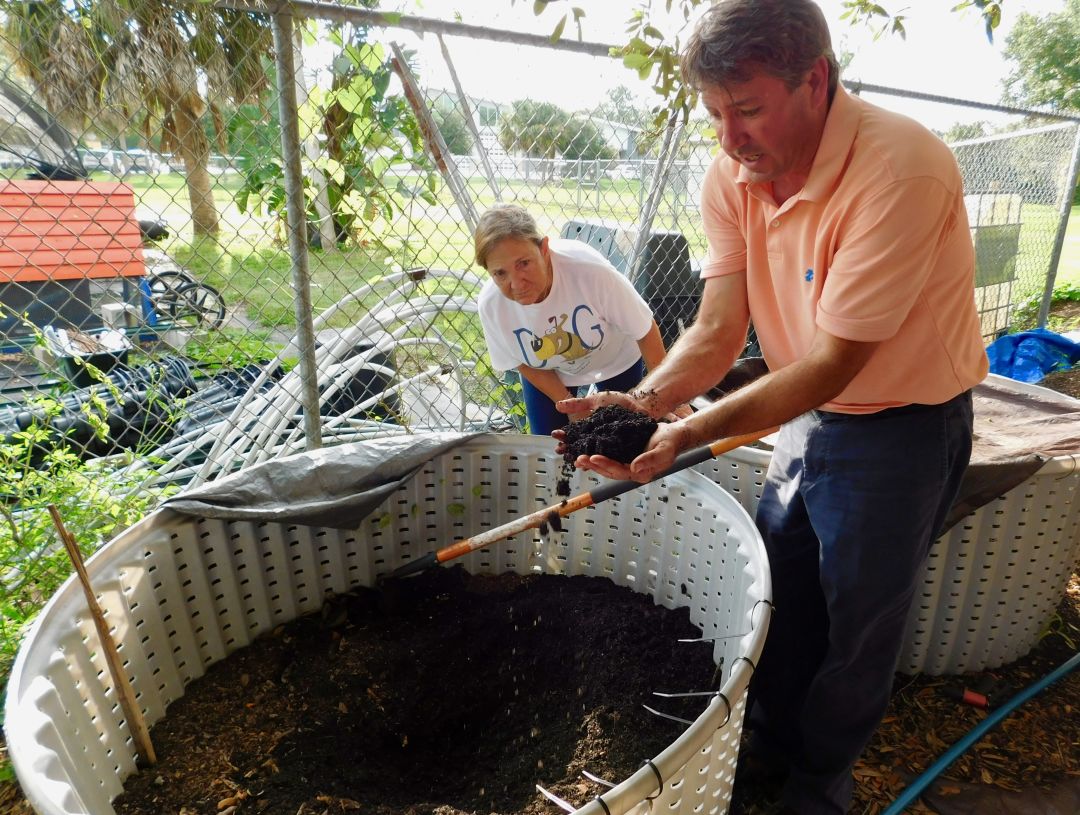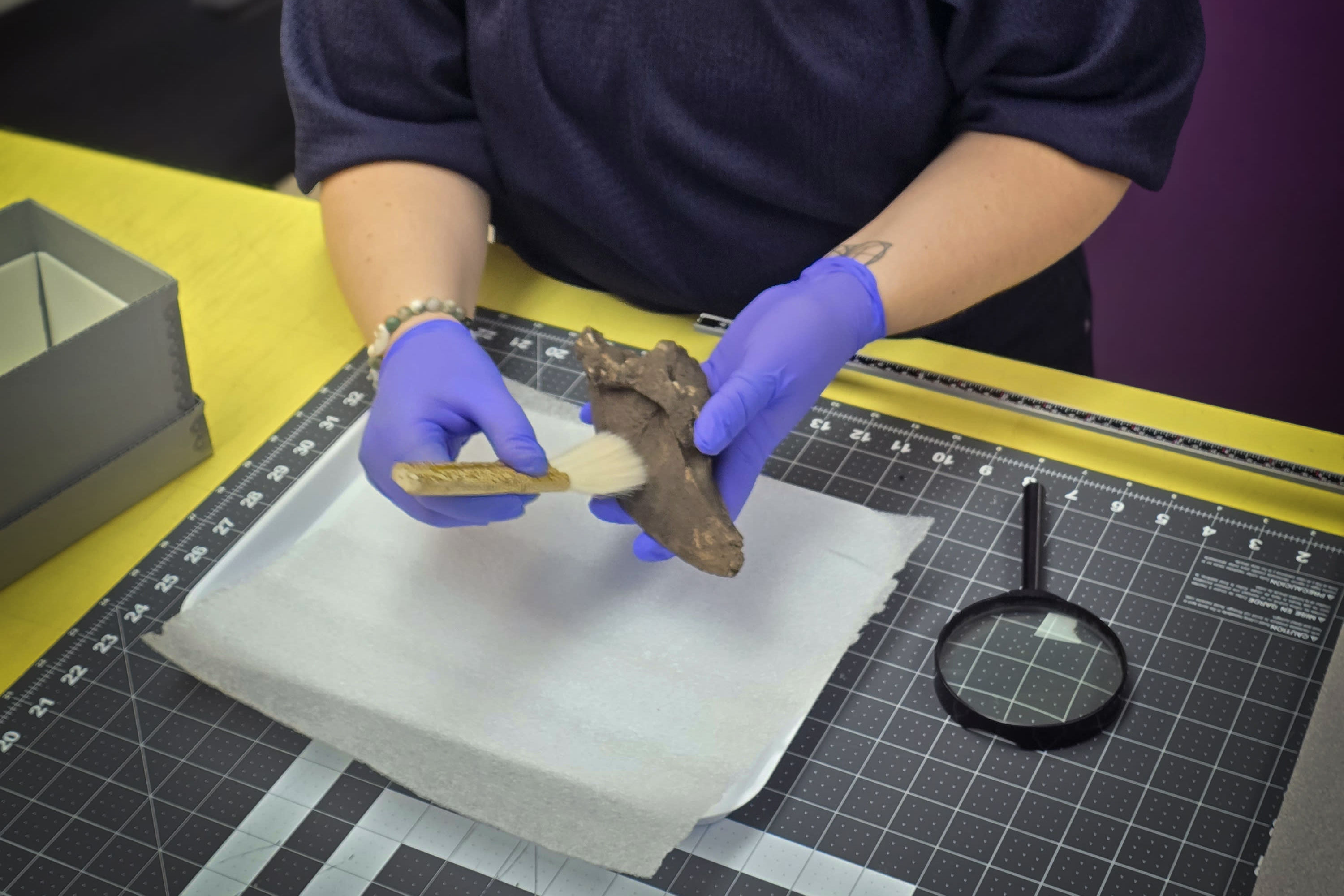Free Workshop Covers the Ins and Outs of Composting

Randall Penn shows attendees of the Let's Make Some Black Gold class a healthy vermicompost pile full of beneficial worms.
Image: Olivia Letts
Approximately 31 to 40 percent of all food produced in the United States is thrown out, contributing to a gigantic 18 percent of total methane emissions from landfills, which in turn bumps up our rising greenhouse gas levels. To combat this, consider composting your waste. Composting is a controlled process through which organic waste is broken down by microorganisms, leaving you with partially decomposed matter that is super-nutritious for the soil and can be used to boost the health of your garden.
Environmentally conscious Sarasotans have probably thought about composting at some point, but they might not know where to begin. That's where the University of Florida’s Institute of Food and Agricultural Sciences comes in. The Institute's periodic Let’s Make Some Black Gold class is a 90-minute workshop that functions as a fantastic first step for those interested in composting. I dropped in this week to learn more.
The workshop is taught by Randall Penn, a solid waste reduction agent with the Institute. Penn kicks off each class with an indoor lesson introducing the ins and outs of composting, and then guides attendees outdoors for a live demonstration of both regular composting and vermicomposting, which uses worms. Toting a plastic water bottle, I started off feeling out of place, but I left the workshop feeling equipped to become the Rumplestiltskin of rotten food.
In the workshop, I learned that you need a 30-to-1 carbon-to-nitrogen ratio to create rich compost. Moreover, there are four components to a compost pile: shelter, food, air and water. Penn showed us how to screen your compost to remove foreign objects and guided us through the proper amounts of each compost component, giving us examples of shelter and food (think “greens” like veggies for food and “browns” like mulch for shelter). To maintain a good environment for composting, you need a lot more shelter than food in your pile, the occasional “fluffing” for aerobic bacteria growth and an ideal moisture level of 40 to 60 percent. Penn also went through common mistakes people make, like trying to use meats and carnivore poop for compost. Turns out, your dog’s waste will throw the environment off-kilter.
A quarter of material landfilled in Sarasota is compostable, but the city’s lack of a compost facility and its ordinance against transporting food waste has dissuaded large-scale composting efforts. Let's Make Some Black Gold is part of a public outreach effort to change that. Penn has been teaching the class for two years and feels encouraged by the workshop’s success and the feedback of those who have begun composting at home or in their workplaces thanks to what they learned. “The response from the community has been overwhelming,” he says.
Registration for Let's Make Some Black Gold is free, but you can register for $25 to get your own Geobin compost container to take home after the class. The classes are held at the Institute's office at Twin Lakes Park, 6700 Clark Road, Sarasota. To take a look at or register for upcoming classes, click here. The Institute also offers a number of online resources that cover different aspects of composting.



